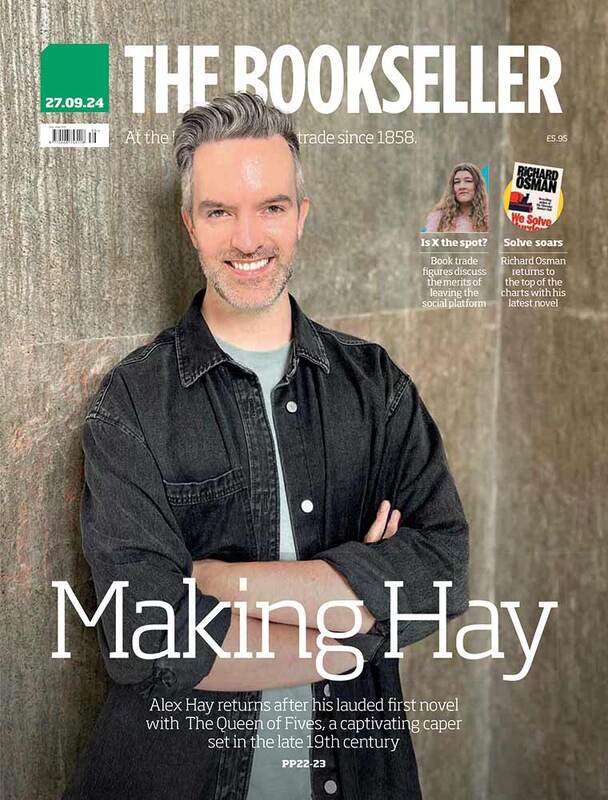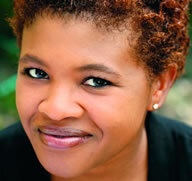You are viewing your 1 free article this month. Login to read more articles.
Attica Locke | "I think you can get people to think about things that are new, or uncomfortable, if you take them on a journey that feels vaguely familiar"
American author Attica Locke picked up an Orange Prize nomination in 2009 for her début novel Black Water Rising, a much-praised literary thriller set in 1980s Houston against a backdrop of politics and corruption.
Locke’s second novel, The Cutting Season (Serpent’s Tail, September), is a murder mystery which also tackles the weighty themes of race, power and class. Although the novel takes place in 2009, The Cutting Season is steeped in the troubled past of the American Deep South.
On her ability to seamlessly meld a crime story with serious socio-political themes, she says, over the phone from her home in LA: “I think you can get people to think about things that are new, or uncomfortable, if you take them on a journey that feels vaguely familiar.” The mystery genre, she says, has “certain signposts along the way; the body; when the first cops show up. There’s something about that story trope that is familiar to readers, so while you get them sitting comfortably, I think that the brain might open up to some other sneaky stuff, too.”
Belle Vie is a grand plantation house in Louisiana whose ancestral owners grew rich from slavery and the surrounding sugar-cane fields. Now it’s a glossy tourist attraction, much favoured for fancy weddings. Caren, a young African-American woman, has managed Belle Vie for the past four years, when a body is found near the perimeter fence. It’s revealed to be a murdered Mexican girl, a worker in the fields. As Caren is unwillingly drawn in to the investigation, she makes some disturbing discoveries about Belle Vie’s past—and future.
Serpent’s Tail will be bringing Locke to the UK and Ireland from 9th to 16th September for a major publicity campaign to include print and broadcast interviews. There will also be an outdoor advertising campaign.
The Cutting Season was partly inspired by a wedding Locke attended at a plantation in 2004. It was an event that triggered very mixed emotions, and she remembers bursting into tears upon arriving at the venue: “I’m walking through this plantation in my fancy clothes with my white husband; isn’t this a sign of tremendous progress? Is that what we’re celebrating tonight? Or is it completely disgusting that we’re throwing a party on a plantation?” The novel is also a look into the world of historical tourism, and “the bizarreness and the absurdity of having an events venue on this tortured land.”
On the subject of literary inspirations, Locke says she loves the fiction of the American South: “that’s the sound that I hear in my ears, a music that’s perfectly attuned to how I grew up, the way that people talk and the way that stories get told is familiar and comforting to me.” She cites Harper Lee, Larry Brown, Pete Dexter and Toni Morrison as particular favourites.
There was also a musical muse for The Cutting Season: she listened constantly to the Texan bluesman known as Lightnin’ Hopkins while writing the novel. His voice is often accompanied with just a guitar and his music is “not a lush blues sound, it’s very reedy and thin and kind of haunting”, Locke says.
But The Cutting Season nearly wasn’t written at all. Locke suffered from “second-book syndrome” and, painfully aware that there would be certain expectations of the book given the success of her début (in addition to the Orange Prize shortlist, Black Water Rising was also nominated for an Edgar Award and was a finalist in the Los Angeles Times Book Awards): “When I wrote Black Water Rising I literally wrote at the edge of my knowledge of writing books. I didn’t know what I didn’t know. I simply wrote to the limits of what I could do.
“Having gone through that experience and learned from it I started getting really self-conscious about choices.” She wrote a whole draft of The Cutting Season in the first-person. “All of a sudden I was like: ‘you could write a book any kind of way! How do I know what’s the right way to do it?’ I felt really nervous and self-conscious. I almost quit.”
Now, second-novel syndrome anxieties fully overcome, she is working on her third novel, which will catch up with a familiar character—lawyer Jay Porter from Black Water Rising.
Locke first began her writing career as a screenwriter in LA. When making the sometimes tricky move from scripts to novels, she recalls reading a book one night which served as something of an epiphany—as it was written in the present tense, “which, as a screenwriter, is my mother tongue”. That sudden realisation freed her from any attempt to write, as she says, “in a grand literary style . . . I just went with my voice”.
Personal file
1974 born in Texas
1991-1995 read Film Studies at Northwestern University, Chicago
1998-present worked as a screenwriter on scripts for Paramount, Warner Bros, Disney, 20th Century Fox, Jerry Bruckheimer Films, HBO and Dreamworks
1999 appointed a Fellow at the Sundance Film Institute
2009 début Black Water Rising (Serpent’s Tail), Orange Prize-shortlisted
2011-present author-in-residence at the Library Foundation of Los Angeles
Bibliography
2009 Black Water Rising
2012 The Cutting Season
Book data
Publication 13/09/12
Formats £14.99 hb / £12.99 e-book
ISBN 9781846689123/
7658500
Rights sold tbc
Editor Rebecca Gray, Serpents Tail (UK)
Agent Richard Abate, 3 Arts Entertainment, US











